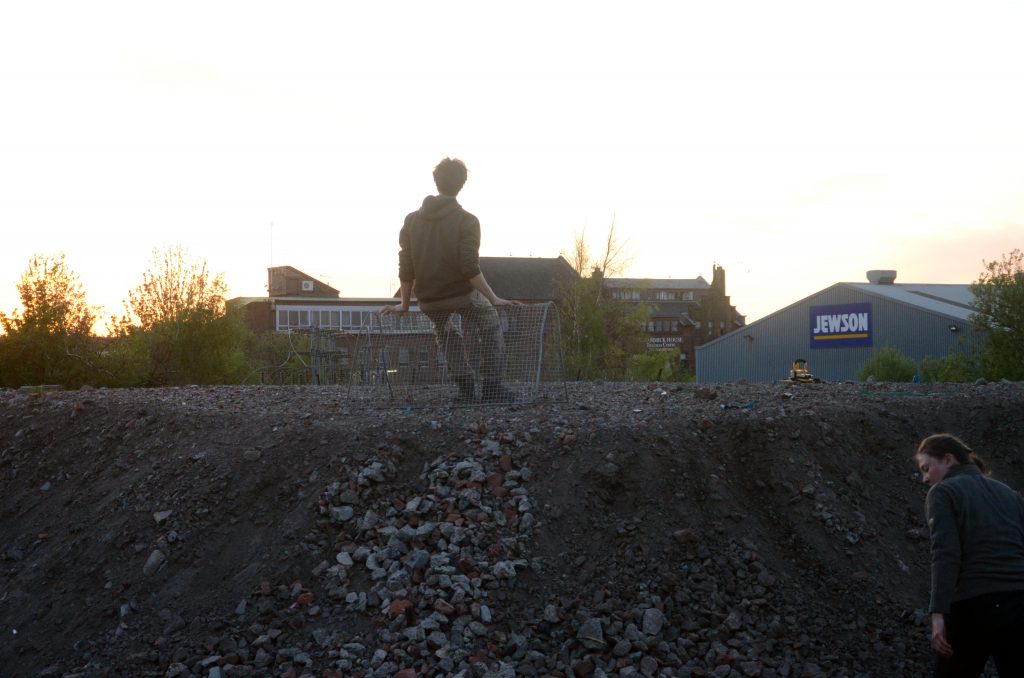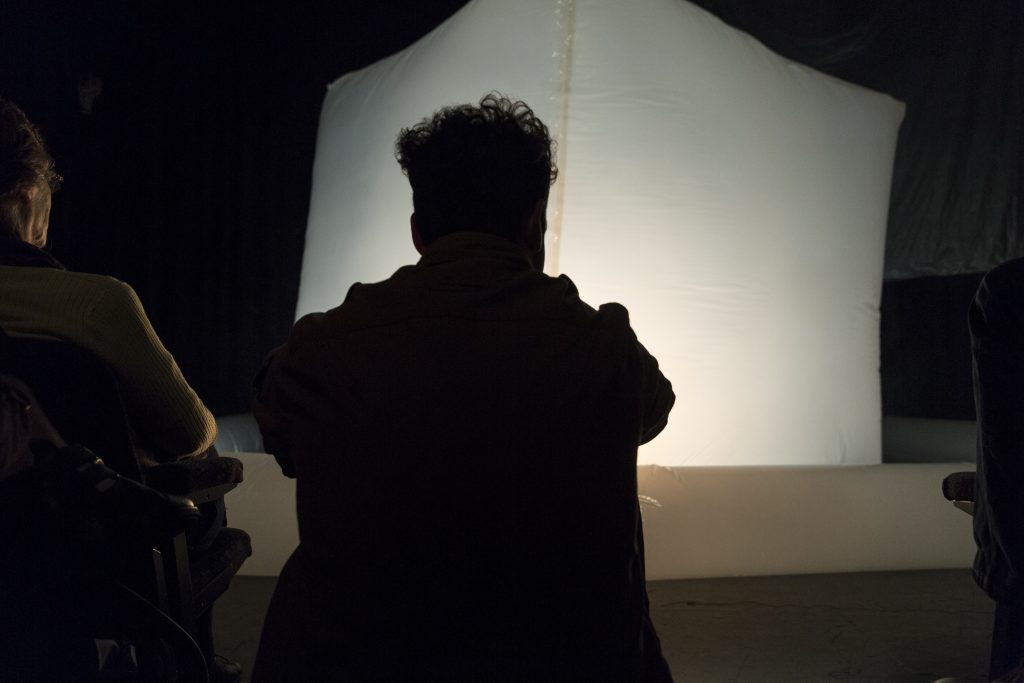I finally edited my email signature, namely the regularly updated ‘upcoming’ section which, without invitation, reassures each and every recipient of correspondence that I am, in fact, busy. For the last weeks, I have been manually deleting the promised activity from the bottom of each email before sending. Reliving these cancelations over and over each day may well have had some therapeutic value, but as we morph collectively into this new normal i’m interested in the status of these cancelled events as exciting objects in their own right.
When The Doing Group started, as is alluded in our name, we wanted to create an atmosphere akin to a reading group. An invitation read out by Peter and Josh on a misty morning by the River Kelvin, invited us on shared explorations, laboratories and experiments. It wasn’t for another 8 months that those experiments took the form of a public performance. Since then we have been privileged enough to have sustained a practice of presentation and output, even whilst spread across multiple continents and timezones. Our studio practice became a secondary means of contact, rather we are deeply familiar with the online platforms into which many organisations now venture.
Other than this geographical quirk, our working conditions mirror those of collectives and companies the neoliberal world over. We labour over applications, set targets and deadlines, deliver work and on rare occasions spend time together without the demand of a concrete outcome. As much as we try to address the pressures and demands on our group as precarious art workers, through the creation of an emergency fund for example, our working models are and will always be a product of the wider climate of artistic labour.

Peter in Rain is Liquid Sunshine, Pollokshields Playhouse 2016 Photo by Alex Lister
Bojana Kunst, in her book ‘The Artist at Work’ captures some of this shared experience in regards to our project based labour:
‘At the end of the project, there is this ‘line of death’; it is a moment of pure fulfillment, the final consummation of creative life without an experience that would follow it. To put it another way: the project is a promise in the future, but it can only be realised as a catastrophe; one namely needs to cross the line of death in order to be able to implement the project.
Project work is therefore connected to a constant catastrophic feeling that, as a totality with which we are supposed to redo our lives (and our present), work is on the verge of collapse. Interestingly, this prevailing way of working gives a feeling (even in the case of the smallest of projects) that it transforms the whole world or at least life in general; in this manner, it even more radically influences the acceleration of duration and present time, establishing a specifically ‘economizing’ attitude toward life – we work responsibly for the future while the present slips continuously through our fingers.’
We have discussed often the implications of this ‘line of death’ or the fear of failure in how we relate as a group, in what pressures we load onto ourselves and expect of others. We care a great deal about one another but recognise that despite our intentions we are, due to our position in the system, also doing harm. And so it is of great significance that we find ourselves in this unprecedented cenario, where at present two of our current projects, after much labour and preparation are cancelled or postponed. The promises of those futures have been broken.

Stanley in [un]physical things, James Arnott Theatre 2018 Photo by Julia Bower
I want to acknowledge that the lived and material conditions of precarious workforces, everywhere are extremely vulnerable at this time, and I hope not to make light of the fact that there is a very real threat to life. I don’t wish to fetishise staying at home, as something which is not experienced year round by many disabled and chronically ill peers. The international and local mobility that I am now without was always premised on my privileges.
I am sceptical of the many calls to artists to be creative and productive in this time. I also admire the artistic community’s capacity to overcome restrictions and implement their projects in some form, pushing them still over Kunst’s ‘line of death’ in incredible displays of responsiveness and resilience.
For my peers in The Doing Group and beyond however, i’m trying to ease into the non-realisation of what we have worked so hard on. I hope that in future, we might understand better how much worth resides in the conversations and imaginings of things which never are, and that we might channel this knowing into how we work within the system of artistic production. Cancellations didn’t undo us, they enacted the care and hospitality we strive for in every gathering, we were able to pay artists for non-delivery in a massive shift in arts funding protocol. I hope to be able to use some of the time afforded by my new routine to actively witness what has been made possible.
Our website ‘about section’, written around the time of our conception four and a half years ago, describes that we are a collaborative performance group concerned with the process of ‘doing’. In my second week of self isolation I am reminded that ‘not doing’, is a type of doing too.
From our respective quarantines, self isolations and lock downs in Germany, Austria, Switzerland and Scotland, The Doing Group will be posting some of our reflections on not doing throughout the coming weeks. We welcome any comments or ideas you might want to share with us, or not.
Sending warm wishes,
Christiana and The Doing Group

